Looking for a particular format (e.g., video)? Click on the blue tab of your choice to filter our resources by type.

Facing the Divide
The American Psychological Association's Facing the Divide video series brings psychological science to the conversation regarding the connections among race, racism and health. As experts on human behavior, psychologists have a unique perspective that can inform critical analysis of race relations. The site offers a variety of videos, discussion guides, ...

Parents: Supporting Learning During the COVID-19 Pandemic
This new online learning module from the IRIS Center offers tips to support your child’s learning at home during the COVID-19 pandemic. Supported by the U.S. Department of Education’s Office of Special Education Programs (OSEP) and located at Vanderbilt University’s Peabody College, the IRIS Center creates high-quality, online open educational ...

Trinka and Sam Fighting the Big Virus: Trinka, Sam, and Littletown Work Together (NCTSN)
This story from the National Child Traumatic Stress Network (NCTSN) helps young children and families talk about their experiences and feelings related to COVID-19 and the need to shelter in place. In the story, the coronavirus has spread to Littletown causing changes in everyone's lives. The story opens doors to ...

NCSMH’s COVID-19 page
The National Center for School Mental Health (NCSMH) offers a collection of resources for schools dealing with COVID-19. There are specific planning resources for school administrators and staff, several wellness resources, technology tools to support mental health, and data collection resources for researchers assessing COVID-19-related behavioral health. http://www.schoolmentalhealth.org/COVID-19/ ...

Student access to mental health information on California college campuses
Two surveys of California public college students provide insight into the preliminary impact of the California Mental Health Services Authority's activities on college students' receipt of information about mental health issues and support services. The research described in this report was funded by the California Mental Health Services Authority (CalMHSA) ...
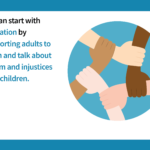
Educating and speaking with children about racism
Our Student Behavior Blog team at SRI Education is deeply heartbroken and outraged by the racism, brutality, and hatred that plague Black children, families, and individuals, not only with regard to recent events, but with recognition that these are pervasive issues they face in every moment of their lives. Consistent ...
Positive Behavior Support at home
This award-winning 5 minute video from the Association for Positive Behavior Support (APBS) offers a clear explanation of Positive Behavior Supports as well as ways that families can use them at home. Positive Behavior Support at Home from Association for PBS on Vimeo ...

Using culturally responsive practices to foster learning during school closures: Challenges and opportunities for equity
This recent blog post by the Mid-Atlantic Regional Educational Laboratory (REL) explores the potential of remote learning to increase the connection between schools and families, which could in turn help teachers employ innovative culturally responsive practices, addressing social and institutional barriers that contribute to disparities in students’ outcomes. https://ies.ed.gov/ncee/edlabs/regions/midatlantic/app/Blog/Post/1031 ...

Fun & games to improve mental health
The Texas Institute for Mental Health in the University of Texas at Austin launched an interactive, online set of resources to celebrate Mental Health Awareness Month. Their Fun and Games features offers activities from different school districts, sortable by type of activity (brain games, up & active, creativity & art, ...

How to help a friend
This infographic/flyer from the National Alliance on Mental Illness (NAMI) of Central Texas offers warning signs for mental illness, tips for starting a conversation with a friend, and ways to support, all in a simple and engaging format. It's part of the new interactive, online set of resources created by ...

Children’s Mental Health FAQs
The Texas Institute for Mental Health in the University of Texas at Austin launched an interactive, online set of resources to celebrate Mental Health Awareness Month. Their Frequently Asked Questions (FAQ) feature addresses a variety of mental health needs, including where to find children's mental health resources related to the ...

Educating students with disabilities in remote settings
In response to the COVID-19 pandemic, the Regional Educational Laboratory (REL) Midwest is featuring a blog series on supporting specific student populations as schools shift to remote learning. In this blog post for teachers, they focus on the unique needs of students with disabilities. https://ies.ed.gov/ncee/edlabs/regions/midwest/blogs/students-disabilities-remote-settings.aspx ...

Guidance for navigating remote learning for English learner students
In response to the COVID-19 pandemic, the Regional Educational Laboratory (REL) Midwest is featuring a blog series on supporting specific student populations as schools shift to remote learning. In this blog post, they focus on the unique needs of English learner students. https://ies.ed.gov/ncee/edlabs/regions/midwest/blogs/english-learner-remote-learning.aspx ...
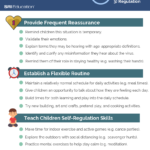
Maintaining wellness in crisis
Helping kids stay busy, stimulated, and positive while creating an environment that allows them to feel safe and protected can be challenging. A team of child trauma experts at Child Trends have listed several recommendations for supporting the emotional well-being of children during high stress periods. They highlight “3 R’s” ...

Resources for schools and districts responding to the COVID-19 crisis
The U.S. Department of Education's Regional Educational Laboratory Program has put together a set of FAQs to assist schools and districts with their most pressing needs—such as transitioning to online instruction, providing Free and Reduced Lunches, supporting students’ social emotional needs, engaging families, and addressing equity concerns for students with ...

4 tips for families trying PBIS at home
Who knew that managing kids' behavior was such a challenge? The folks at PBIS Apps, of course! They've been researching, teaching, and supporting Positive Behavioral Interventions and Supports (PBIS) for decades. Their latest blog post offers insights and experiences from a parent perspective -- one month into this "new normal" ...

Supporting you supporting students: Tools for the challenging times
The 3-part webinar series, hosted by Wellness Together School Mental Health and the California Department of Education, will facilitate an ongoing discussion to highlight practices, programs, and policies to strengthen student supports in the midst of school closures. This series of webinars will address some of the adjustments necessary to ...

PBS learning media
PBS and your local station have curated FREE, standards-aligned videos, interactives, lesson plans, and more. Search lesson plans by subject and/or grade. This might be a good time to delve into the Disease, Illness, and Disability lessons in Health & Physical Education! https://www.pbslearningmedia.org ...

Talking to children about COVID-19 (Coronavirus): A parent resource
The National Association of School Psychologists (NASP) offers a detailed guide for talking to children about coronavirus. This web page includes tips for talking with children at early elementary, late elementary, middle, and high school ages; suggested points to emphasize; suggestions for ways to avoid overwhelming children (and yourself) with ...

COVID-19 resources from the U.S. Department of Education
A new suite of resources from the U.S. Department of Education includes considerations for school closures, provision of special education services, impacts on assessments/accountability, flexibility on meal provision, and more: https://www.ed.gov/coronavirus To see more of our COVID-19 Resources, click the "COVID-19" button below ...

Ways that schools can support students dealing with trauma
In a new blog post for The DC Policy Center, our researcher Yunsoo Park describes the impacts of community violence on students in Washington, DC and offers strategies for schools, plus links to helpful resources. Read When students don’t feel safe in the neighborhood: How can schools help? ...
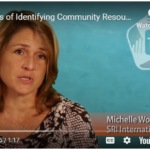
Local trauma-informed care resources empower communities
Dr. Michelle Woodbridge (who has been studying prevention and intervention programs related to school-based mental health for more than 25 years) discusses the benefits of collecting and sharing information about local community resources with participants in research studies. This video was produced by the 3C Institute. Helpful resources on cognitive behavior ...
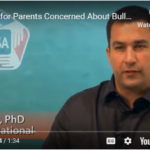
What can parents do to prevent and address school bullying?
Dr. Carl Sumi is an expert in student behavioral research and interventions. This is Dr. Sumi's advice for parents who suspect their child may be experiencing bullying in school. This video was produced by the 3C Institute. Helpful resources on cognitive behavior interventions can be found on the Cognitive Behavioral Intervention ...

Clinicians’ perspectives on implementing evidence-based practices
Dr. Michelle Woodbridge (who has been studying prevention and intervention programs related to school-based mental health for more than 25 years) describes school-based clinicians' perspectives on how using research-supported trauma-informed intervention programs in schools created meaningful, sustainable changes in practice. This video was produced by the 3C Institute. Helpful resources on ...
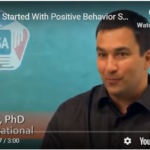
How schools can get started with Positive Behavior Supports
Dr. Carl Sumi, an expert in student behavioral research and interventions discusses positive behavior interventions and supports. This video was produced by the 3C Institute. Additional resources on cognitive behavior interventions can be found on the Cognitive Behavioral Intervention for Trauma in Schools (CBITS) program website. Resources for trauma-informed schools can ...

Researcher-practitioner partnerships in implementing & evaluating evidence-based programs in schools
Implementing and evaluating evidence-based programs (EBPs) in schools requires strong researcher-practitioner partnerships. Here's what Dr. Michelle Woodbridge (who has been studying prevention and intervention programs related to school-based mental health for more than 25 years) says about the role of communication in implementing EBPs in schools. This video was produced by ...

Benefits of working at a nonprofit research institute vs. academic university
What is it like to work for a nonprofit research center? See what Dr. Carl Sumi, Senior Principal Education Researcher at SRI International, says about working at a nonprofit research institute. This video was produced by the 3C Institute. Helpful resources on cognitive behavior interventions can be found on the Cognitive ...

How to determine the quality of evidence-based programs (EBP) for schools
In this video, Dr. Michelle Woodbridge (who has been studying prevention and intervention programs related to school-based mental health for more than 25 years) discusses how to evaluate the fit of EBPs for schools. This video was produced by the 3C Institute. Additional resources on cognitive behavior interventions can be ...
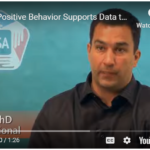
Using data to make better decisions in positive behavioral support programs
In this video, Dr. Carl Sumi, an expert in student behavioral research and interventions, discusses the importance of using data to make decisions in PBIS schools. This video was produced by the 3C Institute. Helpful resources on cognitive behavior interventions can be found on the Cognitive Behavioral Intervention for Trauma ...
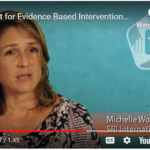
Why should schools adopt evidence-based Interventions?
In this video, Dr. Michelle Woodbridge (who has been studying prevention and intervention programs related to school-based mental health for more than 25 years) discusses why schools should adopt evidence-based programs. This video was produced by the 3C Institute. Additional resources on cognitive behavior interventions can be found on the ...

How quality training maximizes investments and creates sustainable evidence-based practices
In this video, Dr. Michelle Woodbridge (who has been studying prevention and intervention programs related to school-based mental health for more than 25 years) discusses how expanding training programs for educators, such as through Train-the-Trainer models, can maximize schools’ investments in evidence based programs. This video was produced by the ...
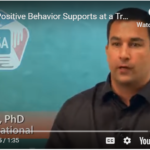
Why Positive Behavior Supports is a good fit for Trauma Informed Schools
In this video, Dr. Carl Sumi, an expert in student behavioral research and interventions, discusses the intersection between PBS and trauma informed schools. School-wide Positive Behavior Supports is a framework for operating schools and changing social culture and supporting all students. This video was produced by the 3C Institute. Additional ...

5 “T” strategies for promoting student mental health
Three and a half minute animated video describing ways that teachers can incorporate mental health practices into everyday classroom activities. Adapted from our How can we incorporate mental health education into schools? Consider the 5 Ts blog ...

How to incorporate social-emotional learning into instruction
Three-minute animated video with tips for classroom teachers. Content adapted from our blog post, How can we incorporate mental health education into schools? Consider the 5 T’s ...
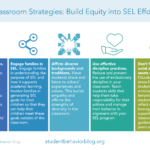
Strategies for bringing an equity lens to SEL
Social-emotional learning (SEL) programs are more likely to be successful with all students when they are grounded in strategies that promote equity. Equity means ‘leveling the playing field’ and creating a culture where all students feel fully included, respected, represented, and valued. Here are a few strategies that start in ...
